As most people are aware, a phenomenon exists in our society called the middle child syndrome, in which the middle child often gets overlooked. This is also true in our education system. The elementary school focuses on the foundations and building blocks of education. High school focuses on preparation for the next step in a young adult’s future. But, what about students in the middle?
Middle school students begin to move from classroom to classroom and have multiple teachers. Students who struggle or are reluctant readers easily get lost in the shuffle. In their changing world, how do we continue to help each child to move forward in their reading skills?
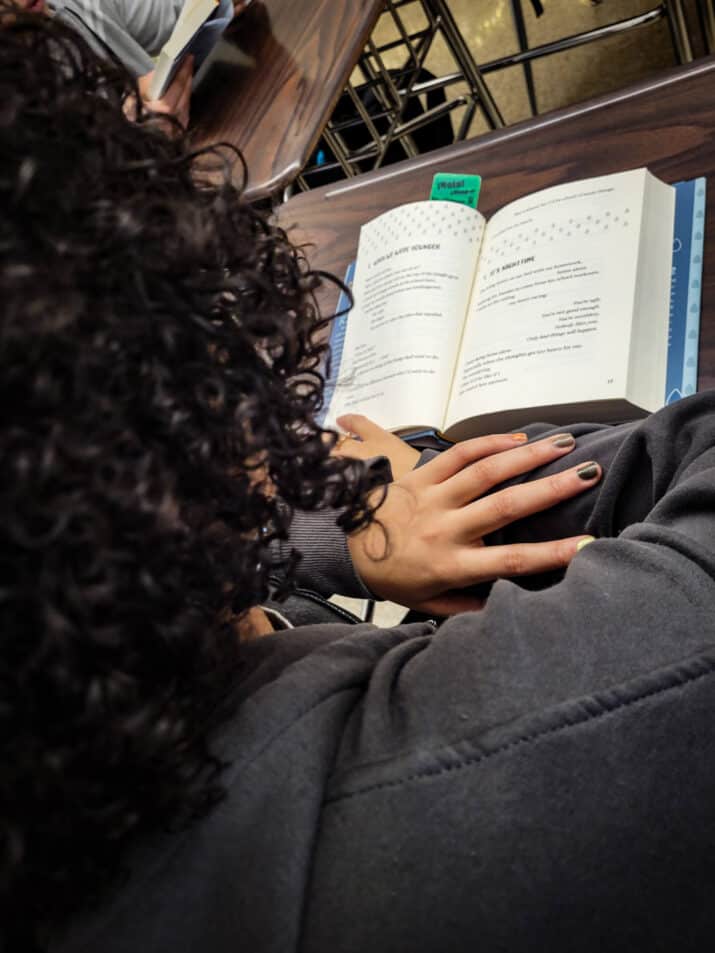
What is so complex about reading in middle school?
Sustained reading is vital to a middle school student’s education and success as a student. What’s more, the reading demands in middle school become more complex and difficult for students as they enter the middle grades.
Yet, most students are starting to get cell phones around middle school or even before. Once they have phones, reading changes from focusing on a book to short bursts of information at a time. Instead of reading complex texts, their world becomes incomplete sentences, emojis, and constant scrolling while only reading bits and pieces.
So what can we do to help middle school readers?
Students of all ages need time to practice reading and learn who they are as readers. Even just 10 minutes of reading at the beginning of class gives them reading time to practice comprehension and grow their vocabulary, as well as develop their reading stamina.
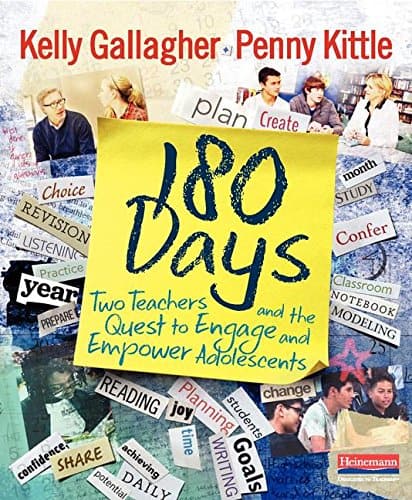
Teachers can read professional development books by Penny Kittle, such as Book Love, or 180 Days, co-written by Kelly Gallagher, about how to maximize this reading time.
But, time spent reading every day should be non-negotiable.
How do we help non-readers or readers who struggle?
If you have readers who struggle or just don’t like to read, there should be a “no books off limits” policy.
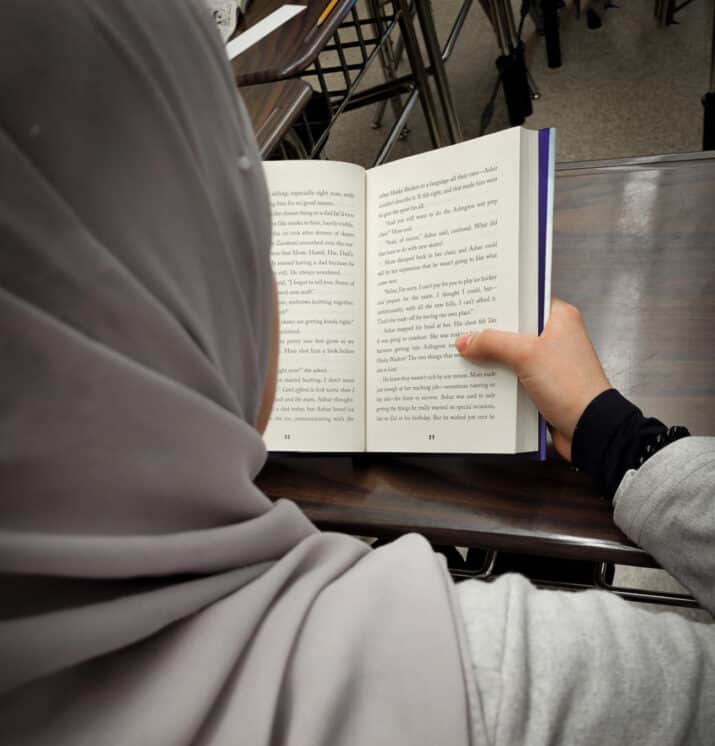
Limits That Hurt Middle School Readers
Some parents and educators limit their reader’s book choices. Don’t make this same mistake. Here are things NOT to say that limit a student’s book options:
- “Graphic novels aren’t real books.”
Wrong! Students practice a multitude of reading skills while not being burdened by so many words. A space between frames, also known as a gutter, requires attention to the photos as well as the words and inferences which are made within these spaces in the book. Colors, or lack of color, often indicate something like a flashback, dream, or other change. How changes in color relate to the book are to be inferred by the reader. - “Books written like poems are hard to understand. Don’t pick them.”
Not true! Sometimes, students must be taught how to read this format. This prose in verse may look like a poem but often reads much like a traditional book. One of the benefits is the ample white space which translates to fewer words on a page. The pages are turned more frequently and allow the student to feel progress toward finishing the book. A quicker completion builds confidence. - “The student is a chronic quitter.”
Many of my 8th graders feel uncertain about how to even select a book. They flounder at finding a book that is a good fit. I learn why they chose the book they did through a quick conversation. I ask them if that method of selecting a book often works for them. If they are truly stuck on how to find a book, I find out what they are watching on YouTube/Netflix/Hulu/Apple+. This information helps me understand what kind of a story may draw them in as readers.
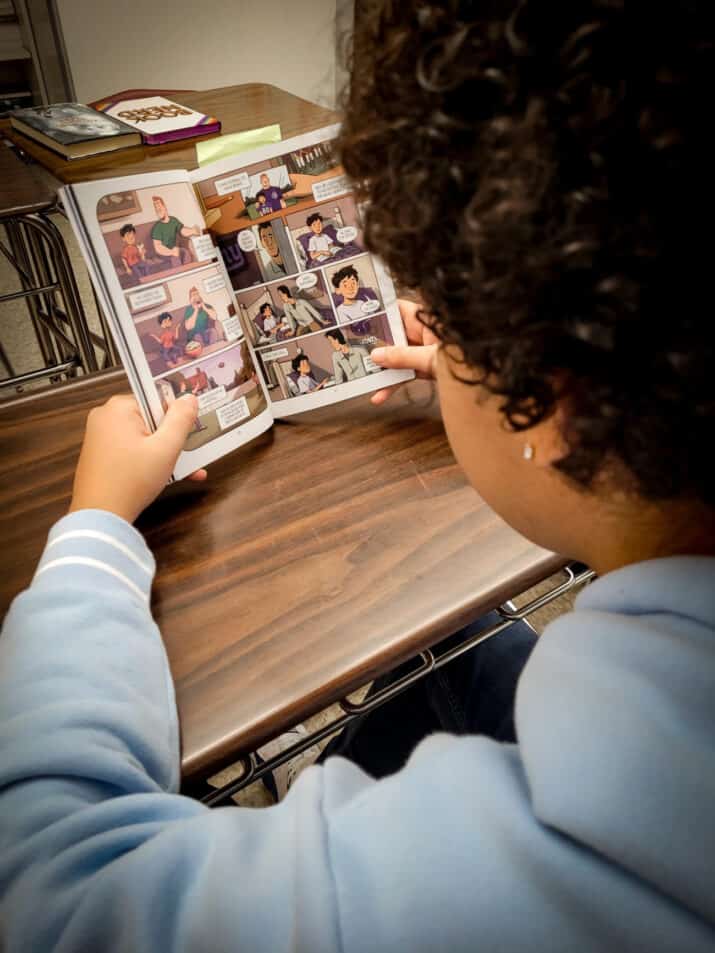
What now?
Above all, we want middle school children to enjoy reading. For many of my middle school students (mainly 8th graders), hearing they have to read for “10 whole minutes?” does invite some groans. But, what I have affectionately called NSA (no strings attached) reading, becomes something they eventually like and even look forward to. We must continue to tout the benefits of silent reading time and push for it to exist.
One last thought: don’t let middle school students fool you. They still love hearing a story read aloud, and it is completely appropriate as well!!
Happy Reading!
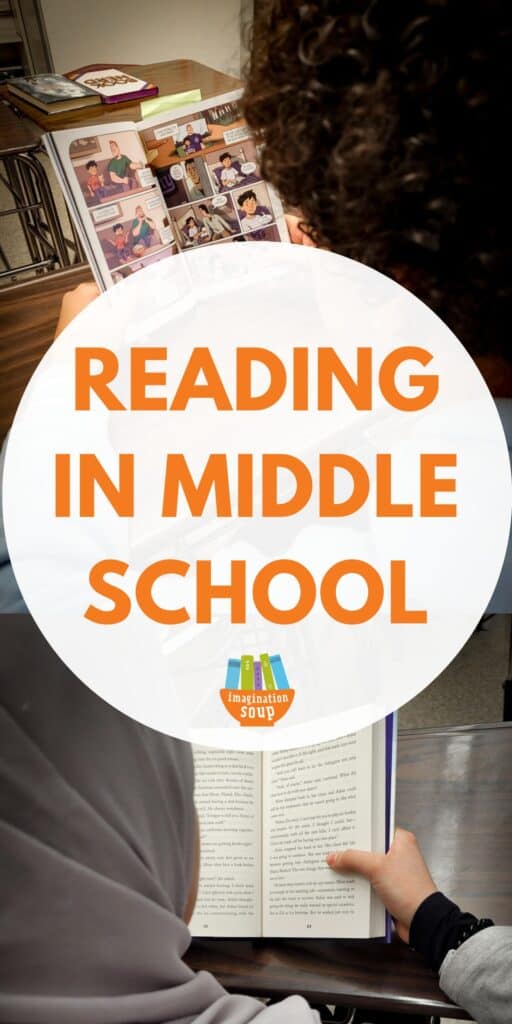
KEEP READING

 PARENTING TIPS
PARENTING TIPS PREGNANCY
PREGNANCY BABY CARE
BABY CARE TODDLERS
TODDLERS TEENS
TEENS HEALTH CARE
HEALTH CARE ACTIVITIES & CRAFTS
ACTIVITIES & CRAFTS


